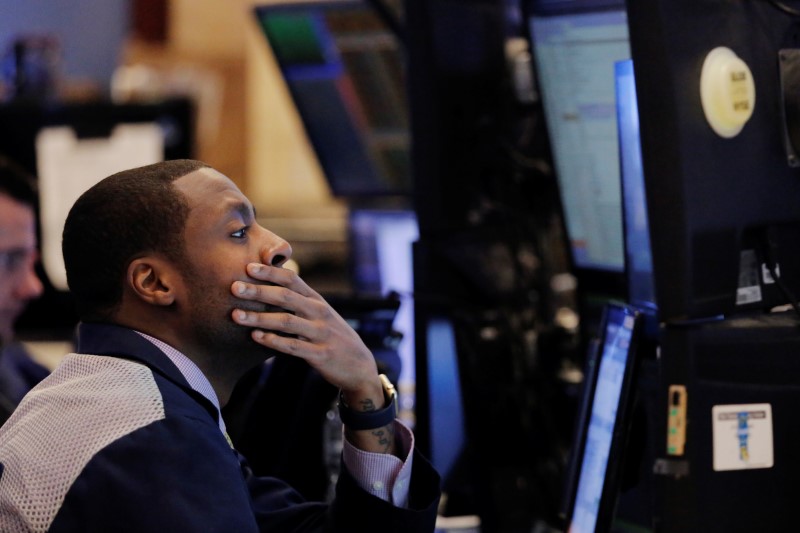By Yasin Ebrahim
Investing.com -- The Dow fell Wednesday, as investors digested remarks from several Federal Reserve officials on the need to stick with the rate hikes to quell inflation ahead of the crucial jobs report due Friday.
The Dow Jones Industrial Average fell 1.2%, or 346 points, the Nasdaq slipped 0.68%, and the S&P 500 fell 1%.
Fed speakers continued to push back against market bets of a Fed pivot, insisting that the job to cool above-trend inflation was far from over.
Chicago Fed President Charles Evans said the fed “has further to go,” forecasting interest rates to rise about to a range of 4.5% to 4.75%, flagging ongoing growth in shelter and car prices as key drivers of core inflation.
Other fed members including Minneapolis Fed president Neel Kashkari were also in favor of further tightening, saying the central bank was "quite a ways away” from pausing rate hikes.
Treasury yields moved higher on the remarks, pushing rate-sensitive sectors of the market like utilities and consumer staples, both of which tend to be used as bond proxies, lower.
Tech stocks also faltered, with Microsoft Corporation (NASDAQ:MSFT) and Apple Inc (NASDAQ:AAPL) falling nearly 1%.
Twitter Inc (NYSE:TWTR), meanwhile, fell more than 3% after Elon Musk asked a court to pause the tech company’s lawsuit against him as he looks to wrap up the deal on or around Oct.28.
Peloton Interactive Inc (NASDAQ:PTON) ended up 4% after paring losses as the fitness equipment company said it would cut about 12% of its workforce amid efforts to ramp its turnaround plan.
Energy was the sole sector in the green as oil prices settled more than 1% higher, a day after OPEC and its allies, or OPEC+, agreed to cut production by 2 million barrels per day to support prices.
The stumble in the broader market comes a day ahead of the monthly jobs report, expected to show the economy created 250,000 jobs last month. But with inflation front and center, data on how many people entered the labor market, or the participation rate, and wage growth will likely dominate investor attention.
“With inflation still running at a high rate, people are eating through their savings that they stockpiled over COVID, so there is reason for people to engage more in the labor force,” Jeff Hibbeler, Director of Portfolio Management and Senior Portfolio Manager at Exencial Wealth Advisors, told Investing.com in an interview on Thursday.
A better-than-expected jobs report, however, will likely be interpreted as bad news for stocks as it could persuade the Fed to remain on the rate hike course.
“Until either the Fed starts to slow the pace of tightening or investors can see the light at the end of the tunnel for rate hikes, I would say that good [economic] news is bad news for [stocks],” Hibbeler added.
